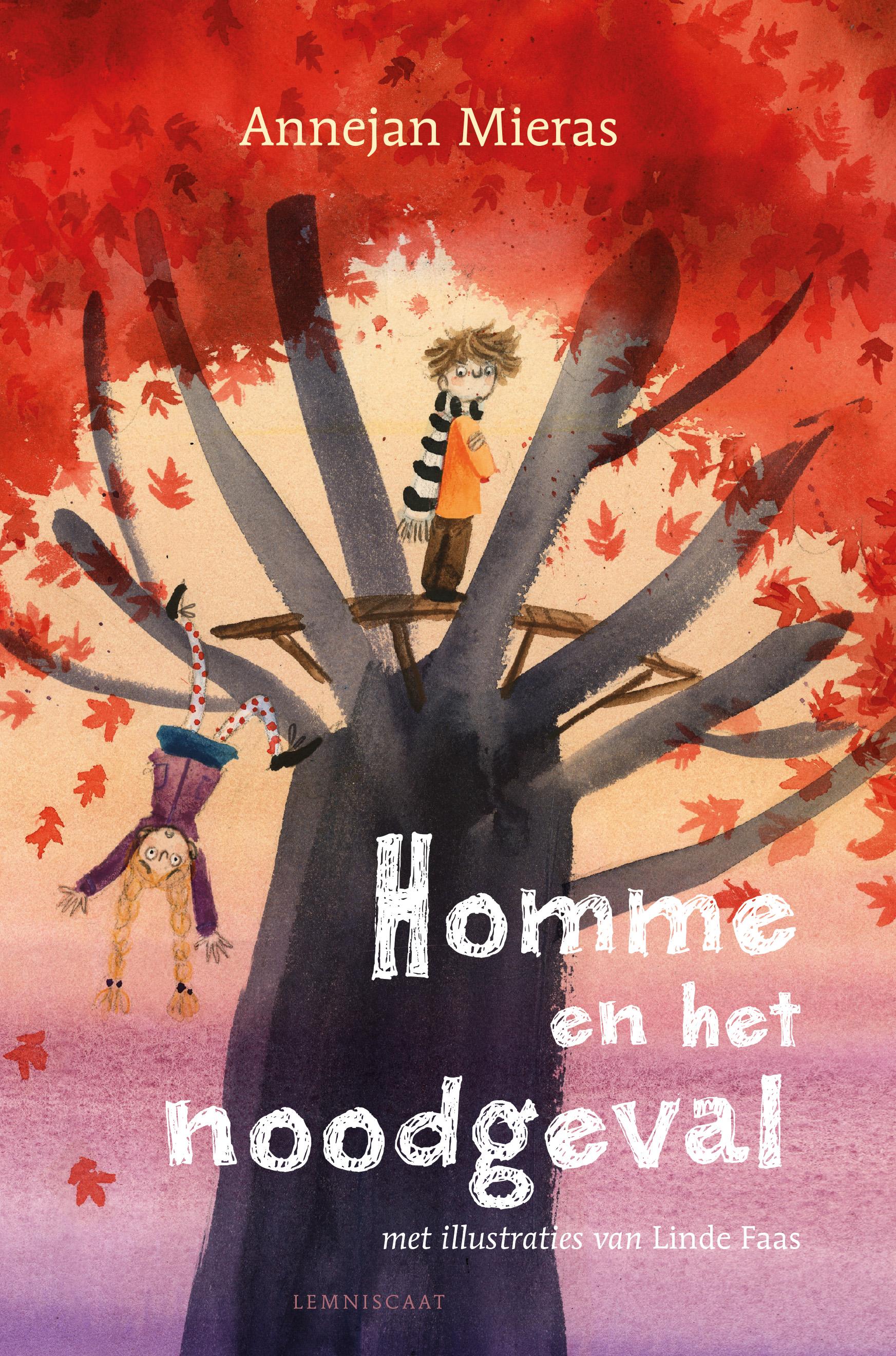Homme and the Emergency Case
In crystal-clear language and lively dialogues, Annejan Mieras tells how the grumpy Homme (9) gradually abandons his opposition to the ‘sleepover’ of his strange classmate Pien, whose troubled mother is staying at a recovery centre. The surprising theme running through the book is a poem by Poland’s Nobel Prize winner, which Mieras subtly and playfully interweaves with the story.

Homme (9) thinks Pien is weird, ugly and awkward. But his mum says his classmate is ‘an emergency case’ and so he has to adapt when the taciturn girl who thinks that she’s a Polish princess becomes his temporary foster sister. But it’s no easy task. Homme is mad that Pien has stolen his bedroom, so he has to sleep in his brother’s room, and it’s all her fault that the camping trip in the autumn break can’t go ahead, and his friends at school are laughing at him. ‘That stupid girl is ruining absolutely everything,’ Homme tells his friend Kees, the bike repairman, who he relies on for parts for his metal animals.
Subtly and with a sense of humour, Mieras makes it easy to empathize with
Homme’s inappropriate behaviour. At the same time, she admirably succeeds in making the reader feel sympathy for Pien, who reflects on her trials and tribulations in her own original poems, which conclude the chapters. Every poem starts with a sentence from Wislawa Szymborska’s poem ‘Moment’. Pien once found the poetry collection of the same name, with a dedication ‘for Pina, my little princess’, on her mother’s bookshelves. Since then, she has believed Szymborska is the Polish father she has never known.
When Homme and Pien — forced to spend time together during the autumn break — try to work out why Kees’s work- shop is suddenly closed, Pien discovers by chance that her presumed Polish origins are based on a misunderstanding. Her self-insight is touching: ‘I wanted a father’ and ‘maybe I have too many hare-brained ideas’. It’s nice to see how Homme and Pien finally come to understand each other a little, and a tentative friendship develops.
The realistic characters and psychologically strong plot bear witness to Mieras’s narrative skills.
